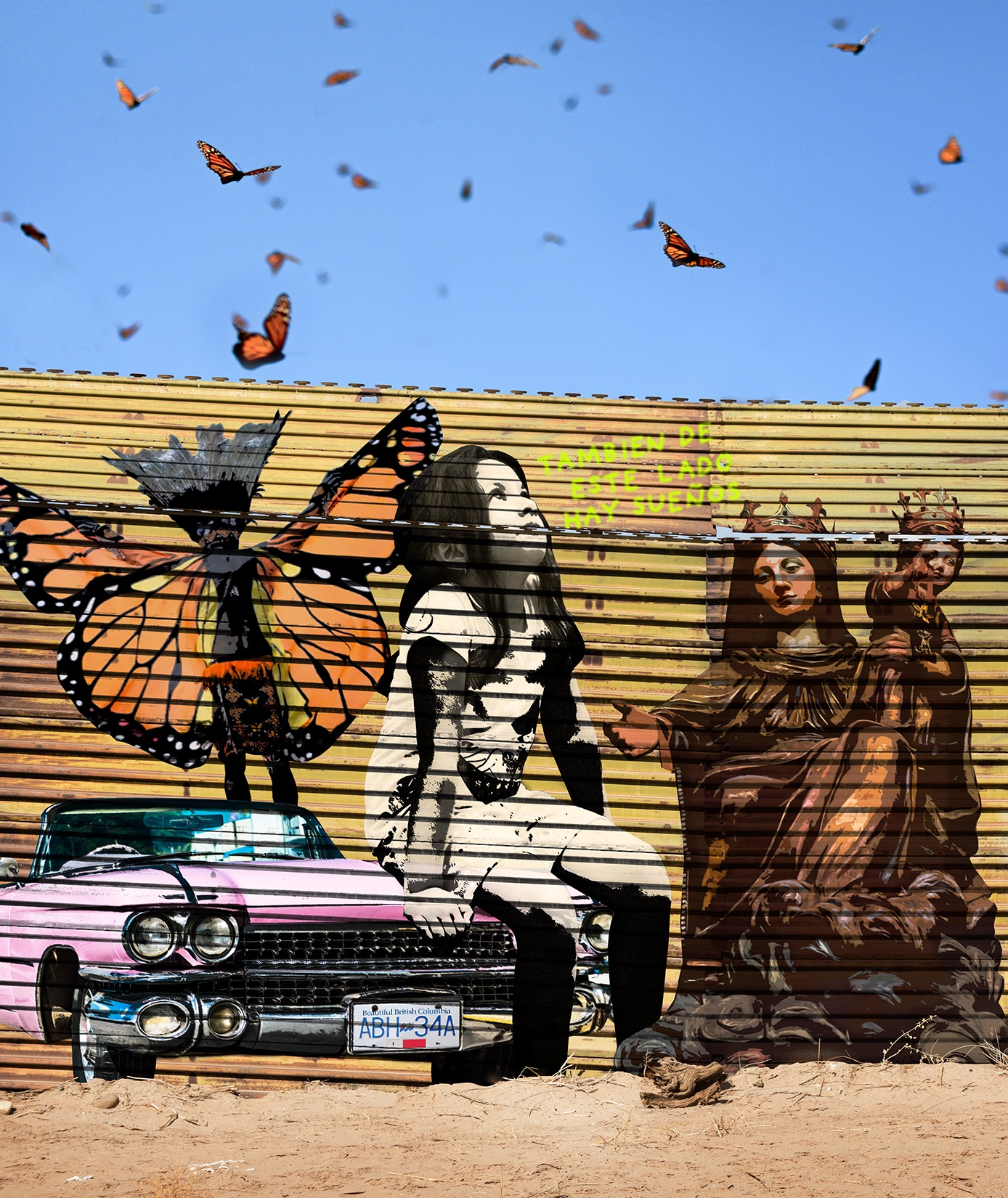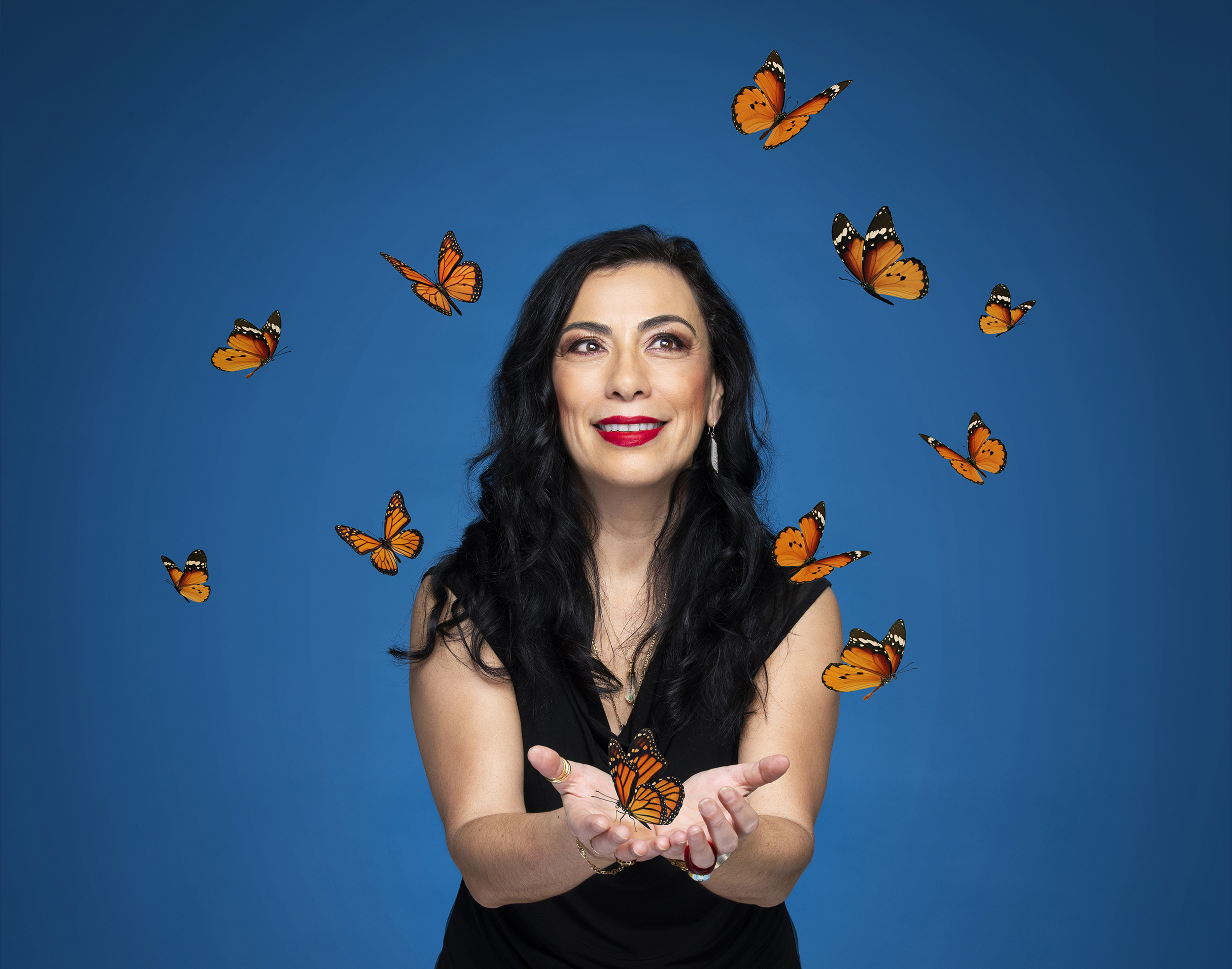
From the minute we walked into the Vancouver Playhouse theatre for Carmen Aguirre’s new play, Anywhere But Here, we were already engrossed in the story. The set, a floor of sand with a backdrop of mountains, alluded to the desert areas further south, while also connecting to the mountainous city we call home.
The play revolves around a family who escaped Pinochet’s regime in Chile in 1973. Manuel, the father, is less revolutionary than the activist mother, Laura, and yearns for the home he was forced to leave. In his words, echoing many newcomers, Vancouver is a cold and unwelcoming place. In a fury of jealousy over the commune Laura has joined, he takes his preteen daughters, Carolita and Lupe on a road trip back to Chile.
What follows is a beautiful, often funny, often deeply sad tribute to those who have left their home for a better place and the dangers that come with it. Defying both time and space, with raps written by Shad Kabango, Aguirre crosses borders, literally, emotionally, and metaphysically.
As we follow the family’s trip south, we are caught in the magical realism space-time-continuum of the desert. An unnamed woman fleeing from Mexico after being threatened for trying to unionize her workplace, is given strength, a horse, and ammunition by 19th century Bolivian revolutionary Juana Azurduy de Padilla. The Chilean family meets a white nationalist murderer and a young man, Arcangel, crossing the Rio Grande in the year 2020 as well as their grandfather who passed away many years earlier. The monarch butterfly also pays a visit to the family, both as the reincarnation of the girls’ estranged aunt Lili as well as a symbol of hope for border crossers.

As the characters see a shrine near the border in memory of those who lost their lives crossing, we are invited to bear witness and not forget those who have come before us. Just as different people add to these altars, either with food and water for people crossing or with flowers or mementoes, it forms a shared experience. Each viewer is moved in a different way, be it a call to help or to add a piece of their own story and contribute to this larger solidarity of migration.
In another moving scene, Carolita asks “When does the ending finish? When does the beginning arrive?” Perhaps the beginning arrives with this type of theatre, a celebration of cultures that are often made to feel unwelcome, with a message to the audience to reflect upon migration in our own lives, how we react to migrants and ideas of borders and identity.
As the play ended I recalled the words of the opening speaker, acclaimed Musqueam weaver, artist, and knowledge holder, Debra Sparrow, who gave a moving speech on the importance of place, home, and welcoming others. Sparrow noted that we are all in some way impacted by displacement, by borders, and by missing family or home. With Sparrow’s words and this play, the largest Latinx piece to receive a world premiere on a mainstage in Canada, I hope we can work towards a world where all can live safely.
– Nelly Leo and Franny Varty
